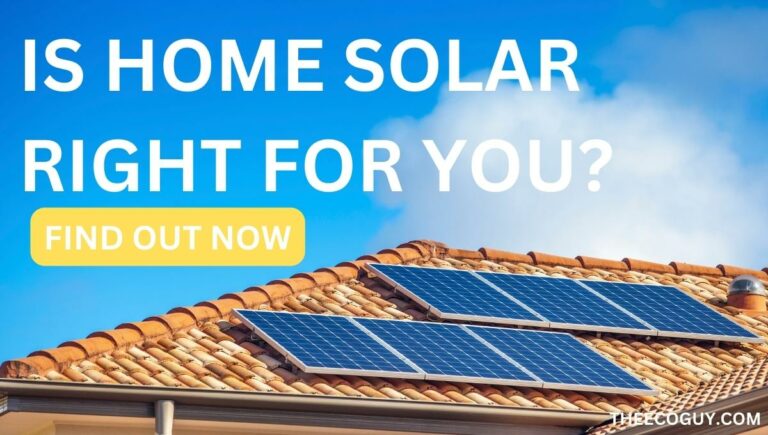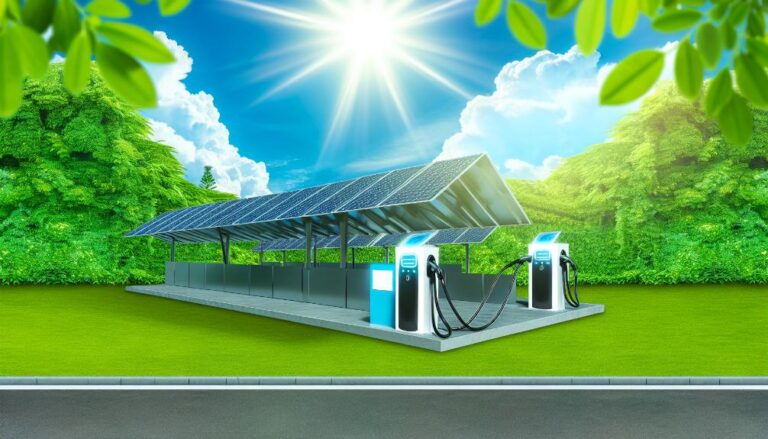The Astonishing Impact of Home Solar on the Environment
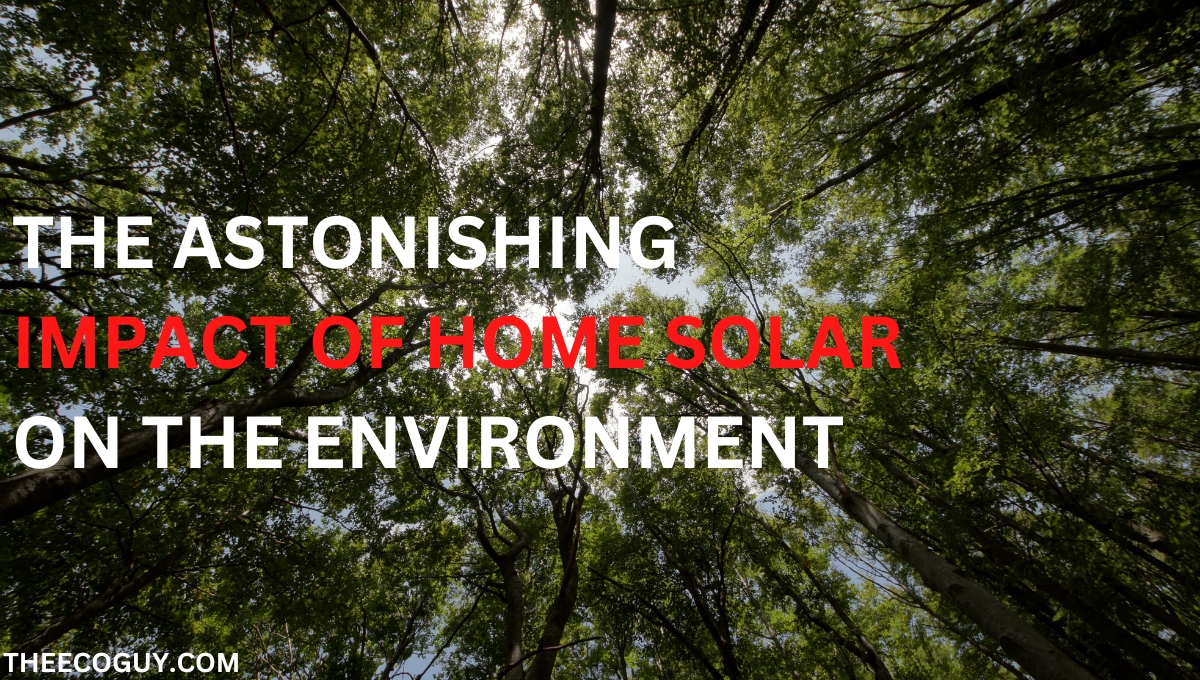
Home solar, also known as residential photovoltaic systems, are increasingly becoming popular options for reducing electricity costs and helping fight climate change. With its ability to provide clean energy and lower emissions, this technology is often seen as a great asset to the environment.
However, home solar brings with it both benefits and challenges that must be taken into consideration when evaluating how this technology impacts the environment.
Home solar’s impact on the environment includes the reduction of carbon and pollution from fossil fuel, generating clean energy, and saving homeowners money in the short and long term.
In this article, we will explore the environmental impacts of home solar, its technical operations, economic implications, and social impacts on our planet. We hope this provides readers with a better understanding of home solar’s potential for improving the environment.
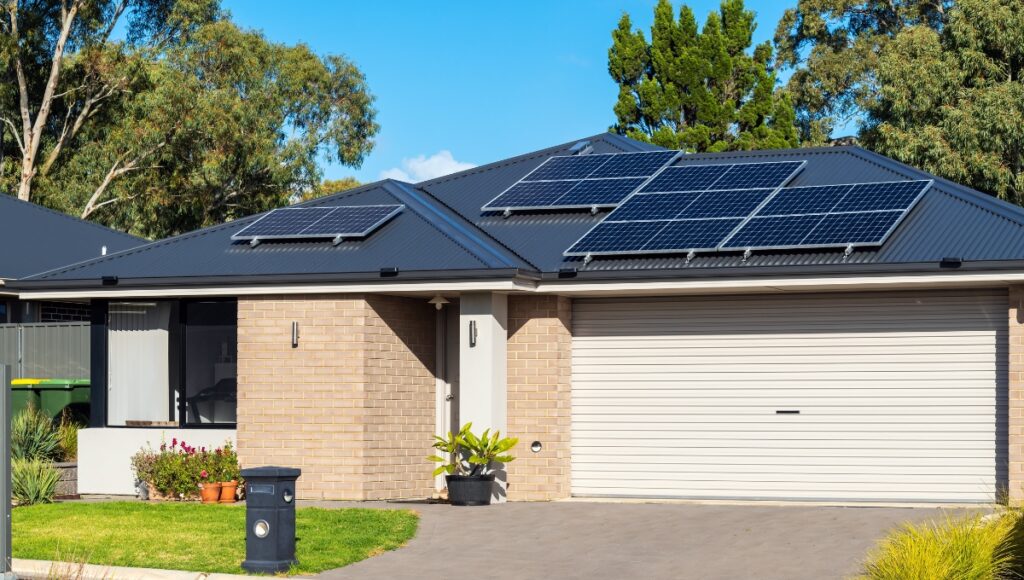
Environmental Impacts of Home Solar
Positive Effects on the Global Carbon Footprint
Home solar is a great way to reduce the global carbon footprint and help fight climate change.
By using renewable energy generated from photovoltaic systems, home solar helps reduce emissions from fossil fuels that are known contributors to global warming. In addition, it produces clean energy which does not release any harmful pollutants into the environment.
Home solar also offers economic benefits for homeowners who can save money in both the short and long term by reducing their electricity costs.
This reduction in emissions is essential for preserving our planet’s atmosphere as well as its inhabitants, making it an invaluable source of clean energy that should be taken advantage of whenever possible.
Reduced Pollution from Fossil Fuel Sources
Home solar is an effective way to reduce pollution from fossil fuel sources and help preserve the environment.
By harnessing the power of the sun, home solar systems can generate clean energy that does not release harmful pollutants into the atmosphere. This helps keep our air and water safe from contamination by reducing emissions from burning fossil fuels and other forms of traditional electricity production.
Not only can solar energy save the environment, but it also provides homeowners with financial benefits in both the short and long term by drastically reducing their electricity bills.
Technical Operations Behind Home Solar
Photovoltaic Panels, Inverters, and Batteries
Home solar systems are composed of several components that work together to generate clean energy: photovoltaic panels, inverters, and batteries.
Photovoltaic (PV) panels convert sunlight into electricity and store it in a battery. This electricity is then converted by an inverter into the type of power needed for powering items like lights, appliances, and other electronics in your home.
Solar inverters are an essential component of home solar systems, as they take the energy generated by photovoltaic panels and convert it into usable electricity. Inverters come in a variety of shapes and sizes to meet different needs, from small portable models to larger stationary units that can power entire homes. Depending on your specific system requirements, there are several types available with various features and benefits.
Traditional inverters are large stationary units that are used to convert the energy generated by solar panels into electricity. These larger inverters are often used in large-scale solar systems and typically require more maintenance and upkeep than micro inverters.
Micro inverters, on the other hand, are smaller, modular units that can be connected and easily installed on your rooftop. These inverters are designed to be more simple and require less maintenance than traditional models, making them the perfect choice for homeowners who want to save time and money on their solar installation. It is important to be aware that micro-inverters are more expensive than traditional inverters.
Batteries are used to store the energy produced by PV panels. This stored energy can be used during periods of high demand, when electric rates are highest, or when sunlight is not available due to weather conditions. Batteries come in a variety of sizes and capabilities, so it’s important to choose one that meets your specific needs and budget. Backup batteries can be utilized to reduce your reliance on the electric grid when it gets dark by using battery energy.
The combination of photovoltaic panels, inverters, and batteries make up the technical operations behind home solar that help to generate clean energy for your home. With so many benefits, it’s no wonder why more people are turning to home solar as a way to reduce their electricity bills and protect the environment.
The Process of Generating Clean Electricity
Home solar systems generate clean electricity through a process known as photovoltaics.
Photovoltaic (PV) cells are made up of layers of semiconductor materials, such as silicon and germanium, which capture sunlight and convert it into direct current (DC) electricity. This DC power is then fed to an inverter, which converts it into alternating current (AC) power and sends it to the electrical grid. If you have a battery in your home solar system, then it will capture any excess energy produced and store it for future use.
Home solar systems are an efficient way to generate clean electricity and reduce energy costs, as well as help protect the environment by reducing carbon emissions from traditional sources of energy production.
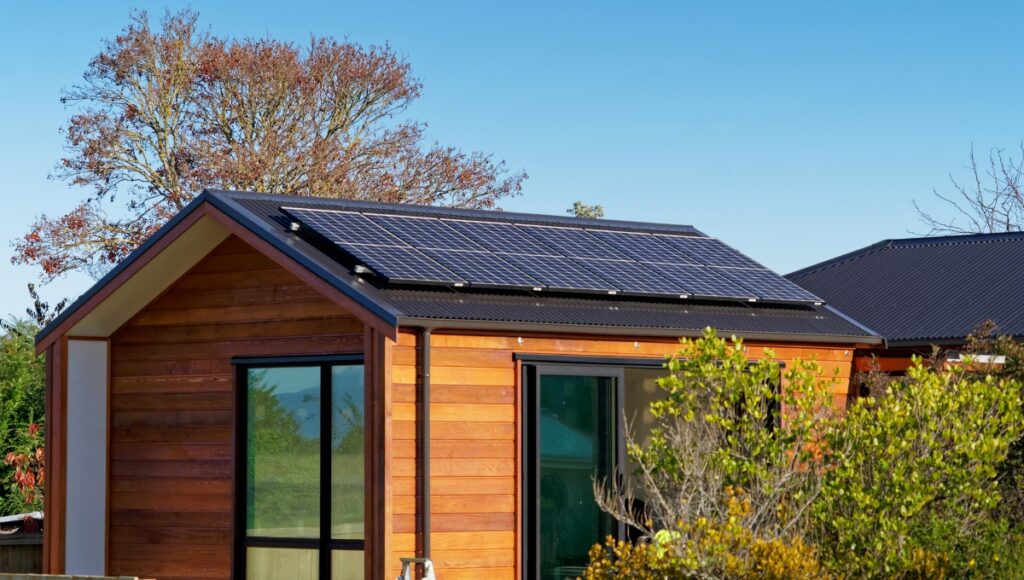
Economic Implications of Home Solar
Initial Cost vs Long-Term Savings
The initial cost of installing a home solar system can be intimidating, but the long-term savings are worth it.
Homeowners who invest in solar energy systems typically see an immediate return on their investment in terms of reduced energy bills and lower utility costs. Over time, those savings add up to thousands of dollars per year.
Additionally, homeowners may also be eligible for government incentives and tax credits that help offset the cost of installation or provide additional financial benefits over time.
Government Rebates / Tax Credits for Solar Owners
There are several government incentives and tax credits available that make it easier for homeowners to go solar.
These include rebates from local governments, as well as federal tax credits that can provide financial benefits over time. In some cases, these incentives may cover up to 30% of the total cost of installing a home solar system.
Additionally, many states offer additional incentives such as net metering programs or renewable energy certificates (RECs). By taking advantage of these incentive programs, you can significantly reduce your upfront costs and reap the rewards sooner than expected!
Social Impacts of Home Solar
Increased Awareness of Renewable Energy Options
One of the most important social impacts of home solar energy is increased awareness about renewable energy. As more people learn about the benefits of solar energy and take advantage of government incentives, it helps to create a culture that values clean, renewable sources of energy and encourages others to follow suit.
Increased Job Opportunities in the Solar Industry
The solar industry has experienced tremendous growth in recent years, creating job opportunities across the country. As more people embrace home solar systems, they create a demand for skilled professionals who can install and maintain these systems.
This creates jobs that pay well and provides a valuable service to communities. By investing in home solar, homeowners are helping to further the growth of this industry and create more job opportunities for others.
Final Thoughts
Home solar systems represent a powerful and efficient way to generate clean electricity and reduce energy costs.
Not only do they provide immediate financial benefits, but also long-term savings that add up over time. Additionally, there are numerous government incentives available that make it easier for homeowners to go solar and reap the rewards sooner than expected!
Furthermore, home solar is not just about saving money; it’s about creating a culture of sustainability by increasing awareness of renewable energy options and stimulating job growth in the industry.
With all these advantages combined, investing in home solar is an investment worth making both now and into the future.




